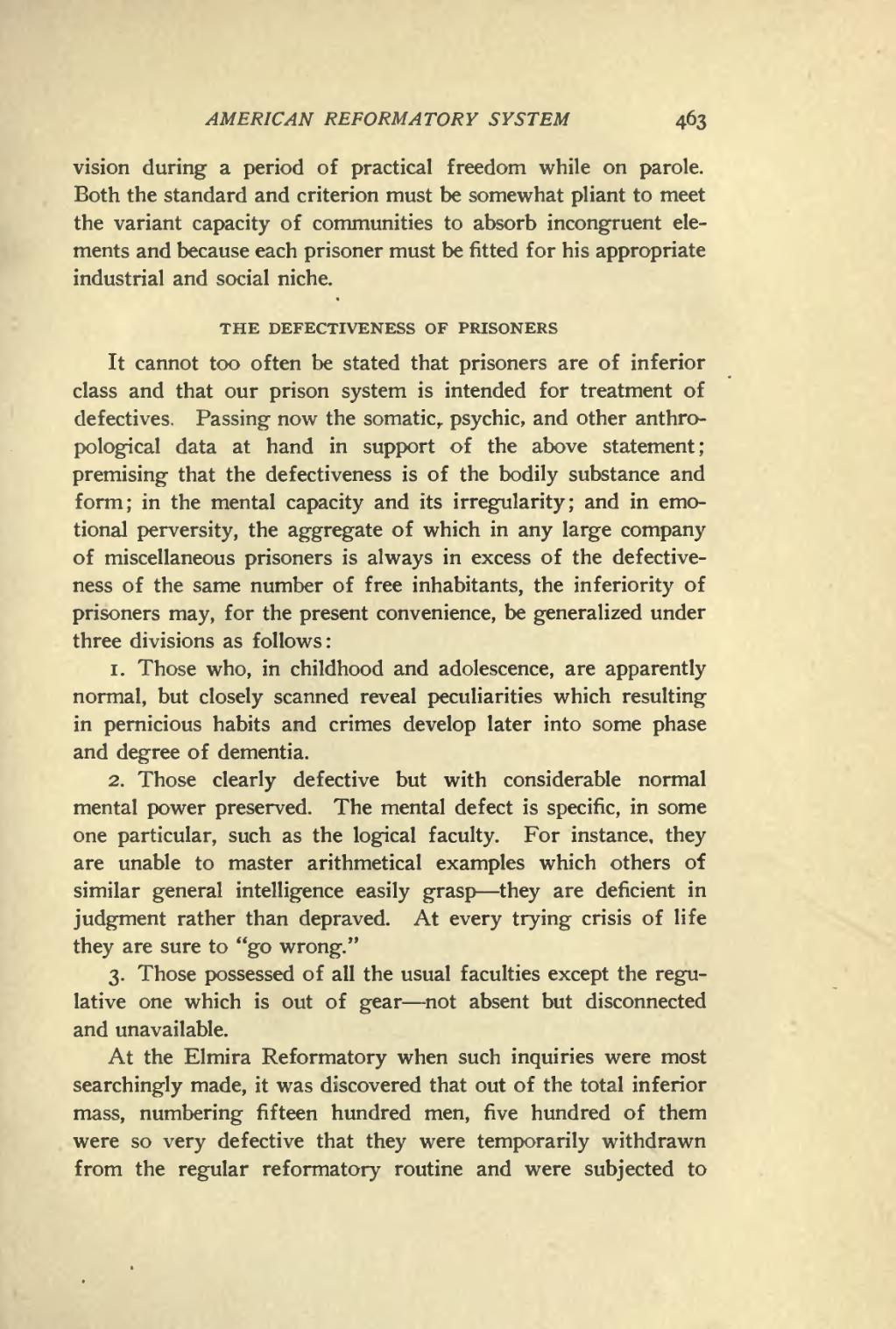AMERICAN REFORMATORY SYSTEM 463
vision during a period of practical freedom while on parole. Both the standard and criterion must be somewhat pliant to meet the variant capacity of communities to absorb incongruent ele- ments and because each prisoner must be fitted for his appropriate industrial and social niche.
THE DEFECTIVENESS OF PRISONERS
It cannot too often be stated that prisoners are of inferior class and that our prison system is intended for treatment of defectives. Passing now the somatic^ psychic, and other anthro- pological data at hand in support of the above statement; premising that the defectiveness is of the bodily substance and form; in the mental capacity and its irregularity; and in emo- tional perversity, the aggregate of which in any large company of miscellaneous prisoners is always in excess of the defective- ness of the same number of free inhabitants, the inferiority of prisoners may, for the present convenience, be generalized under three divisions as follows:
1. Those who, in childhood and adolescence, are apparently normal, but closely scanned reveal peculiarities which resulting in pernicious habits and crimes develop later into some phase and degree of dementia.
2. Those clearly defective but with considerable normal mental power preserved. The mental defect is specific, in some one particular, such as the logical faculty. For instance, they are unable to master arithmetical examples which others of similar general intelligence easily grasp — they are deficient in judgment rather than depraved. At every trying crisis of life they are sure to "go wrong."
3. Those possessed of all the usual faculties except the regu- lative one which is out of gear — not absent but disconnected and unavailable.
At the Elmira Reformatory when such inquiries were most searchingly made, it was discovered that out of the total inferior mass, numbering fifteen hundred men, five hundred of them were so very defective that they were temporarily withdrawn from the regular reformatory routine and were subjected to
